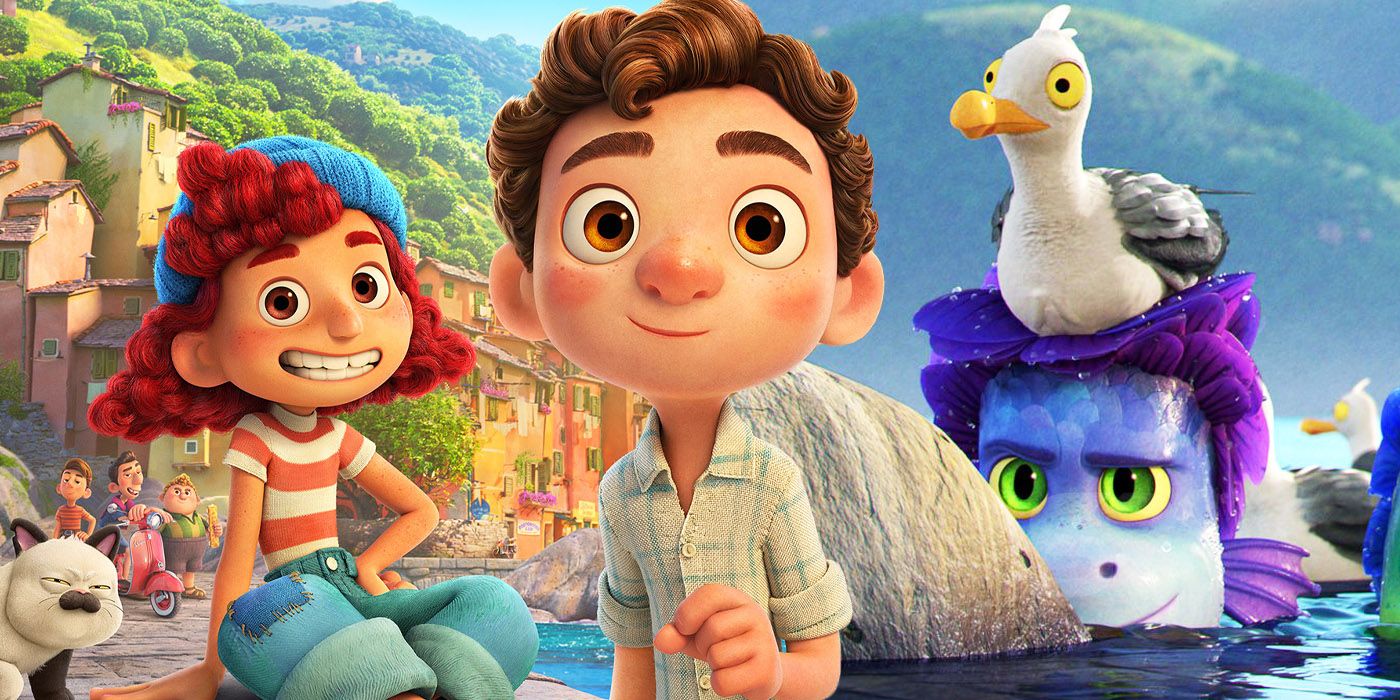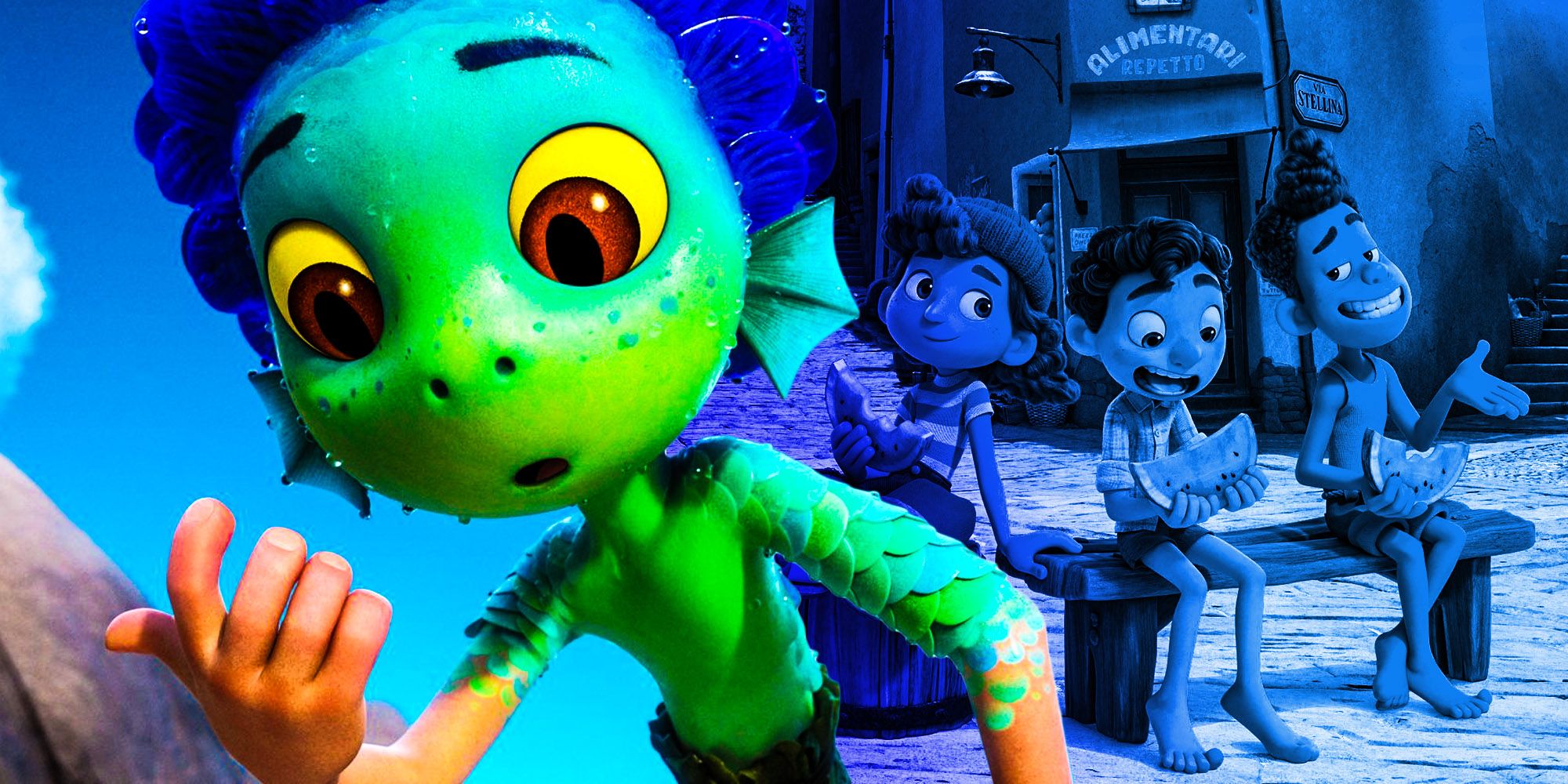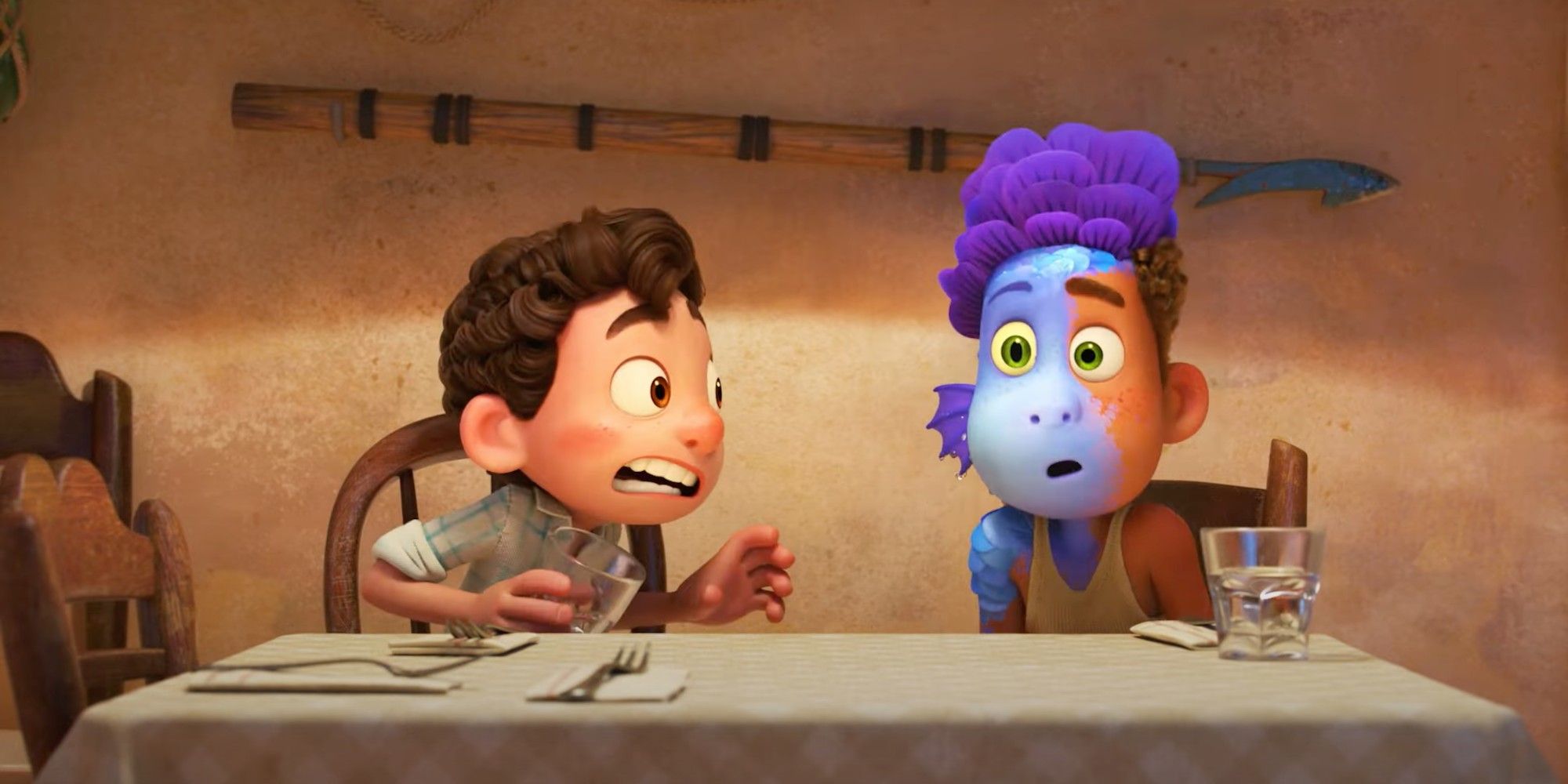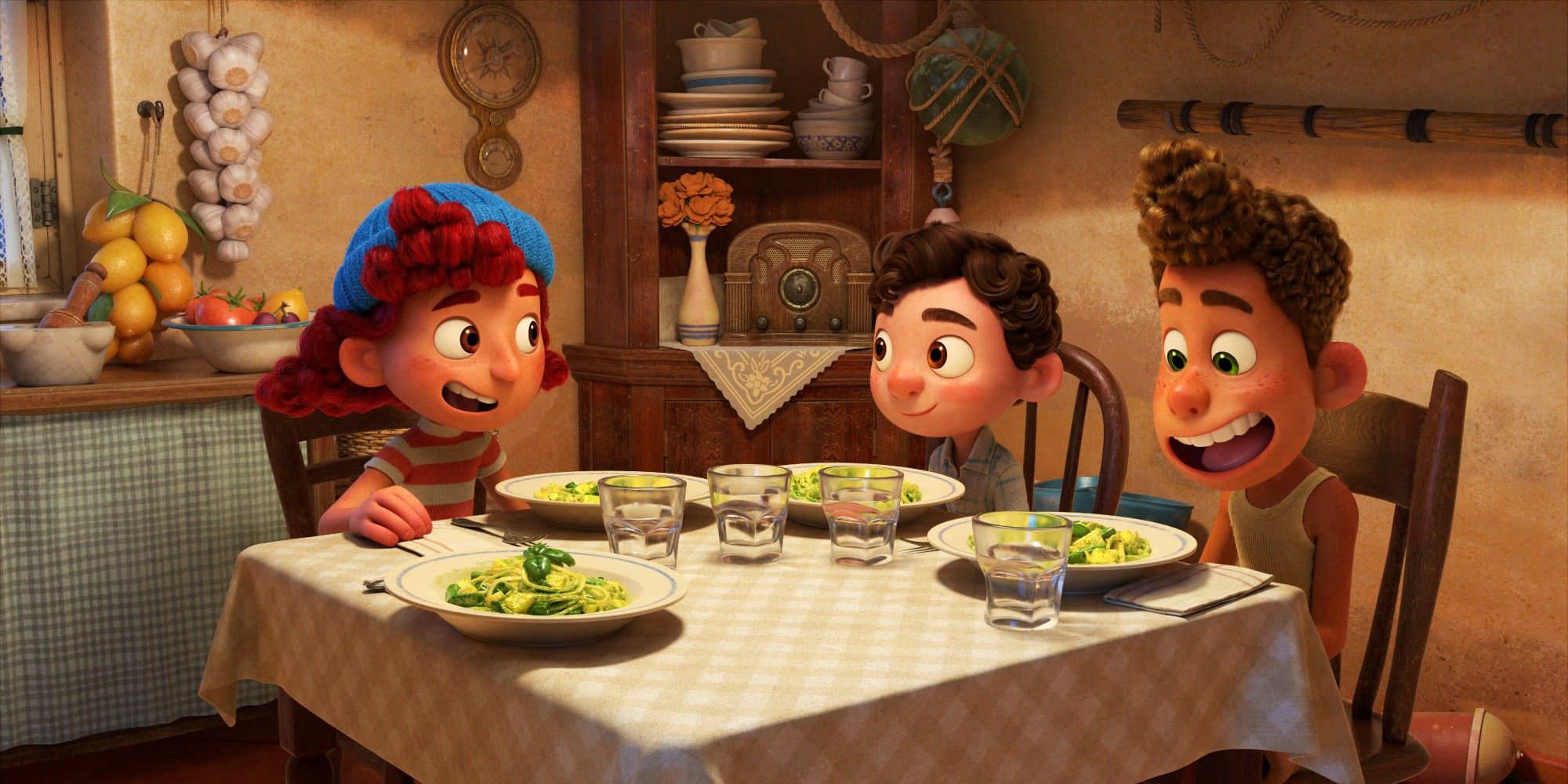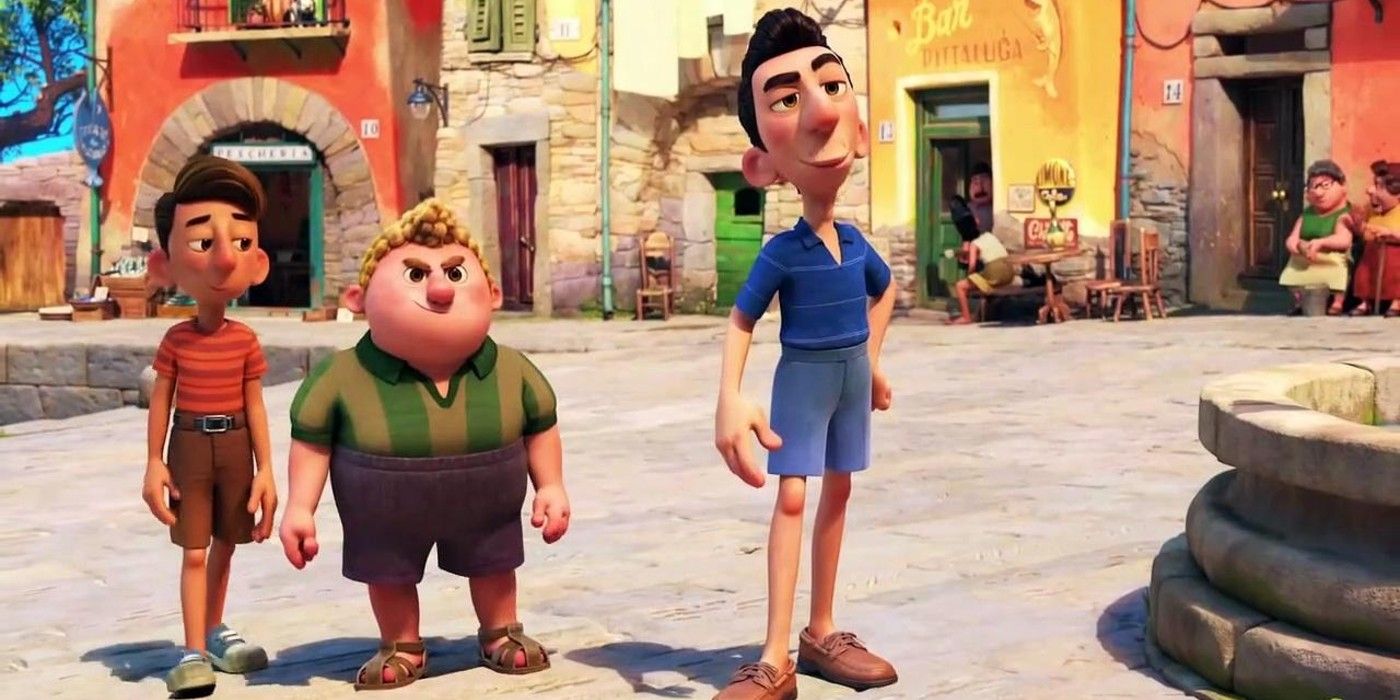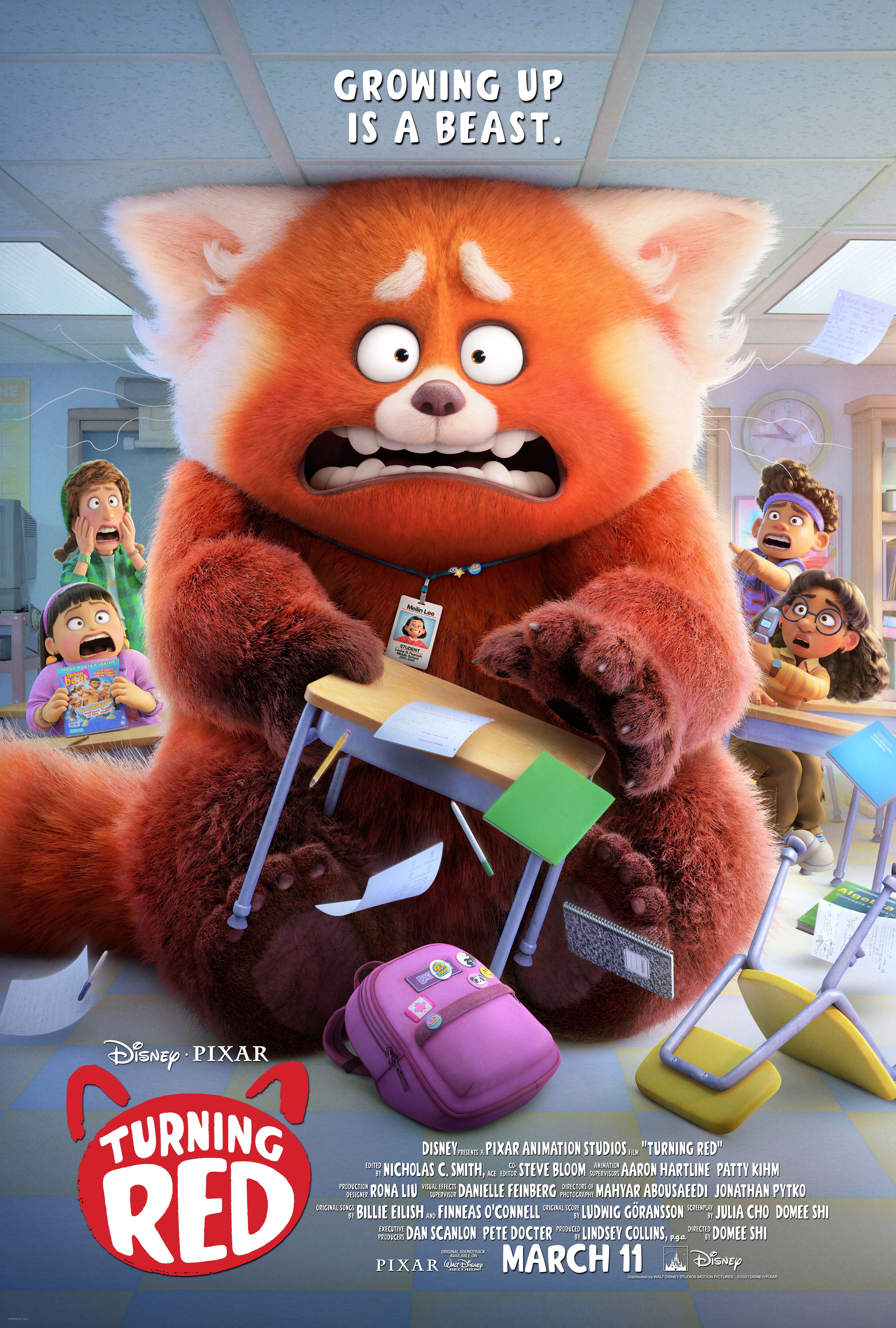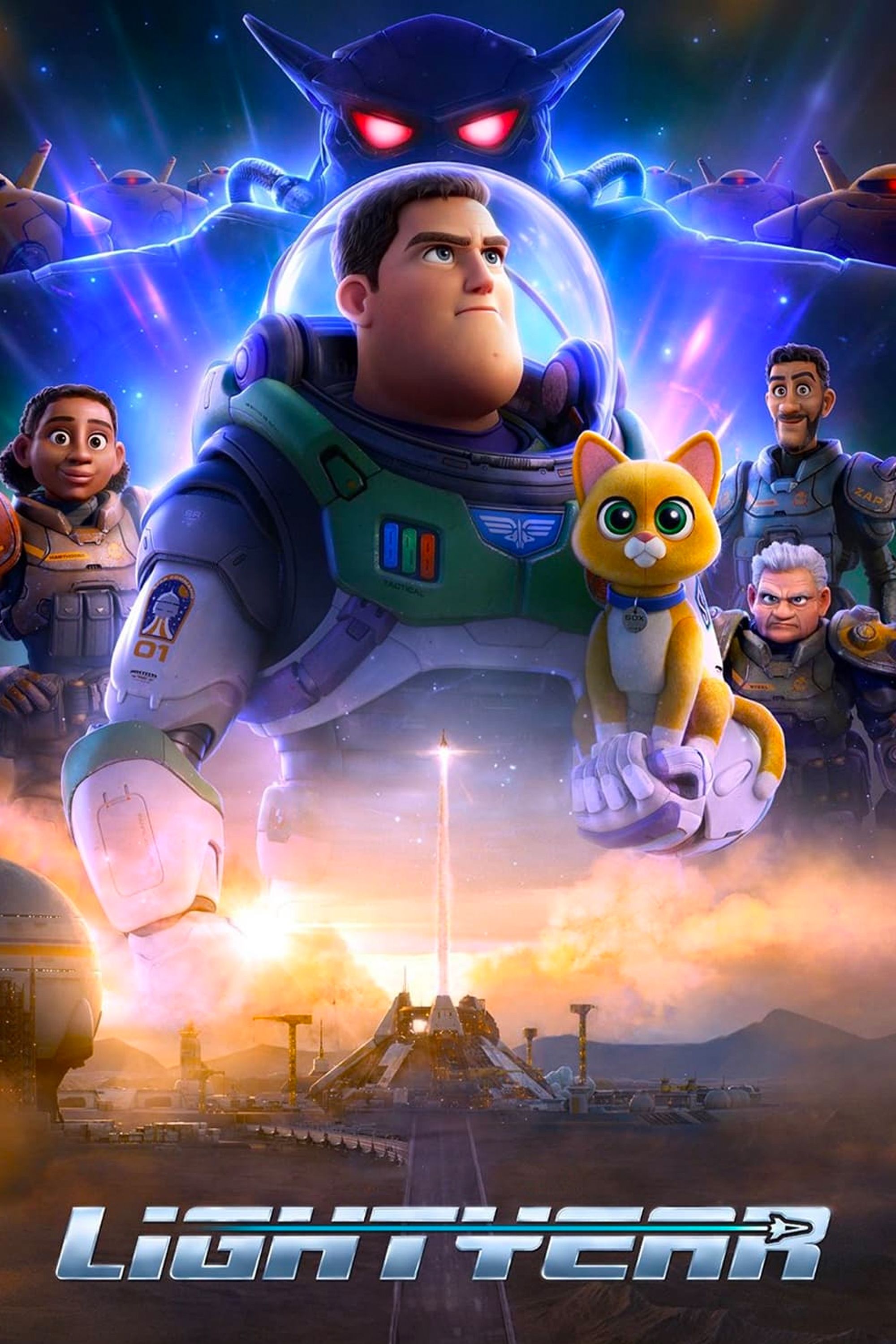Pixar's Luca cleverly hinted at a few story details with the use of certain character names. Directed by Enrico Casarosa, the animated feature film follows a young sea monster who finds a new friend, opening the door into fully living his life for the first time. Set in the fictional town of Portorosso on the Italian Riviera around the 1950s, Luca heavily incorporates Italian culture into the plot, including character names.
The coming-of-age story follows Luca and his best friend Alberto as they escape from the confines of their sea monster lives to live amongst the humans in the coastal town. While Luca grew up believing the sea was his only future, Alberto quickly teaches him that the whole world is out there. The pair then devise a plan to travel the globe on a Vespa, leading to their team-up with Portorosso native Giulia. Though many agree the Pixar movie is about friendship and learning to love others despite differences, there are also elements suggesting Luca is an LGBTQ+ story.
While the story of Luca can be interpreted in a few different ways, there's no question Casarosa and his crew put a lot of effort into developing every aspect of the movie's characters. As always, Luca is full of Easter eggs, and the character surnames also carry extra meanings connected to the Italian language and cultural history.
Luca Paguro
The full name of the titular character is Luca Paguro, and the surname is fitting for the young boy's behavior at the start of the film. The Italian word "paguro" translates to "hermit crab," a crab species known to inhabit empty shells. Like most crabs, they withdraw into their shells when approached or afraid of their surroundings. Luca tends to do this after he first meets Alberto. Not only does Luca live a sheltered life due to his parents' overprotection, but he learns from an early age to hide in caves in the presence of humans.
Alberto Scorfano
Luca's newfound best friend, Alberto Scorfano, also has a significant surname. "Scorfano" in Italian means "scorpionfish," but it's additionally used as a noun, translating to "ugly person." Alberto is by no means ugly in appearance or behavior. Granted, he's secretly living as a sea monster, which nearby humans perceive to be hideous creatures that should be hunted. The negative perception carried by humans is the reason why Luca and Alberto's species are forced to hide their true selves.
Giulia Marcovaldo
Giulia Marcovaldo's last name has German origins with Italian connections. The surname itself translates to "someone strong who can defend the border or land." Fittingly, Giulia lives with her father in the coastal city of Portorosso. She takes it upon herself to train for the Portorosso Cup Race to prevent the local bully from winning, which she views as justice from her small town. Marcovaldo was also the name of an Italian painter in the 13th century and the name of a book of short stories. Considering Giulia's knack for history and learning from her piles of books, Marcovaldo is the perfect surname.
Ercole Visconti
Ercole Visconti plays the primary protagonist in Luca, and his last name supports how much confidence he has in himself. He finds a way to compete in the triathlon due to his history of winning despite Ercole being much older than the other competitors. He enjoys picking on other he views are beneath him, which is fitting considering the surname of Visconti is historically associated with the noble family that ruled Milan during the Middle Ages. Ercole certainly walks around Portorosso as if he's a noble until the events of the big bike race go in Luca and Alberto's favor.

